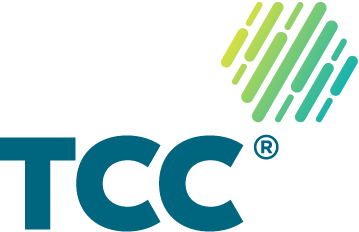

Expert: Andy Sutherland, TCC Group
Facilitator: Roderic Rennison, Rennison Consulting
Overview
Until recently there has been a misconception on the part of some financial intermediaries that what are termed “Article 3 Exempt Firms” that none the changes and obligations arising from MiFID II (which becomes effective on 3rd January 2018,) do not apply to them. This is not the case.
The areas of MiFID II to be aware of
Andy Sutherland the Managing Director of TCC the compliance consultancy provided his expert views on the current “state of play” from the perspective of financial intermediaries and summarised the following 15 areas as ones that intermediaries need to be aware of and have considered in relation to their businesses:
- Best Execution - Affects both investments and withdrawals; Update likely to Terms of Business to reflect policy - Low impact
- Client Agreements - While minimum changes under COBS 8, some amendments likely to be required in the light of MiFID changes – Medium impact
- Client Categorisation - Assumes majority if not all clients treated as Retail – Low impact
- Complaints Handling - Minimal changes to Disp standards – Low impact
- Conflicts of Interest - Likely to impact firms with in-house/own brand funds on a CIP. New rules require proactive approach to “identify and prevent” rather than just manage - Medium impact
- Disclosure - Aggregated costs and charges 10% drop (portfolio managers but client expectations management piece - High impact
- Inducements - Many of the changes already covered in UK by RDR - Low impact
- Investment Research - Low impact for majority of article three exempt / distribution / advisory firms - Low impact
- Product Governance - Some consideration for firms who offer tailored offerings such as a CIP and represents a formalisation of the current RPPD standards and added responsibility (CF10) to proportionately monitor the arrangements – Medium impact
- Remuneration - Changes (SYSC 19) largely covered in UK by RDR & FG13/01 – Low impact
- Senior Management, Systems & Controls - Minimal changes to existing arrangements – Low impact
- Taping - Some changes in process and record keeping for conversations leading to transactions (e.g. fund switches) that are not covered by a suitability report – Medium impact
- Suitability - Some potential impact over timing of suitability report (i.e. before completion of transaction). Also, some impact to nature of ongoing suitability / annual reviews – Medium impact
- Independence - General broadening of existing definition of independence to include MiFID financial instruments although majority of the changes already covered in UK by RDR – Low impact
- Structured Deposits - New investment type for Part 4a permissions (transfer from BCOBS to COBS) - requires completion of online form before 3/1/18 or Variation of Permission thereafter – material to firms seeking to offer SDs as well as all firms offering “independent” firms - Medium impact
FCA Regulatory Overview
Last month FCA Supervisory teams requested MiFID II Transformation plans and stratus updates from a number of firms; this will provide FCA with a cross-sector view on business readiness. FCA will also be likely to undertake a thematic review of MiFID II compliance in 2019 to assess how well the changes have been embedded across the sector
Business readiness
Initial indications from FCA suggest that it will take a sensible and proportionate approach to MiFID’s introduction and that they will be unlikely to take enforcement action against firms for not meeting all MiFID II requirements from day one so long as the firms can give evidence that it has taken sufficient steps to meet the new obligations and that there are plans in place to complete the process.
Key impact areas
MiFID II has lower impact on UK retail investment firms than for those in many other EU countries, as it builds on the work the FCA has done on the retail distribution review (RDR), product governance (RPPD), and remuneration.
The primary areas of impact Article Three Exempt Advisory firms are:
(1) costs & charges disclosure (including on-going and additional reporting); and,
(2) product governance.
Other conduct themes including advice, independence, suitability, conflicts, taping etc. should not be ignored and firms need to understand the impact of the changes on their respective business models.
Structured deposits - notification/VoP:
SDs now fall within the scope of MiFID and this impacts a firm’s permissions. FCA has created a new investment type for structured deposits which means all firms intending to carry out a specific regulated activity, such as giving advice, in relation to structured deposits will need to add this to their part 4A permissions.
This will also apply to firms offering independent advice.
To assist firms, FCA has created an online form (on its website) and all structured deposit notifications submitted using this form before 2 January 2018 will be free of charge. Thereafter, firms will need to apply for, and pay for a formal Variation of Permission (VoP).
Legal entity identifiers (LEIs) – identifying clients
Part of the revision to the MiFID II transaction reporting regime involves providing regulators unique identifiers for clients to make it easier to trace their trading activity through more than one firm and therefore to detect market abuse. For legal persons, which includes charities, trusts and public bodies, they need a LEI. LEIs will be necessary to undertake trading from 3 January 2018.
Takeaway from the sessions
The obligations brought about by MiFID II need to be both understood and acted upon by financial intermediaries and that there is now only a limited amount of time to do so i.e. before 3rd January 2018
Because MiFID II is complex, advice/guidance should be sought from suitably qualified individuals/firms. The compliance firms that support intermediaries are well equipped to do so.


